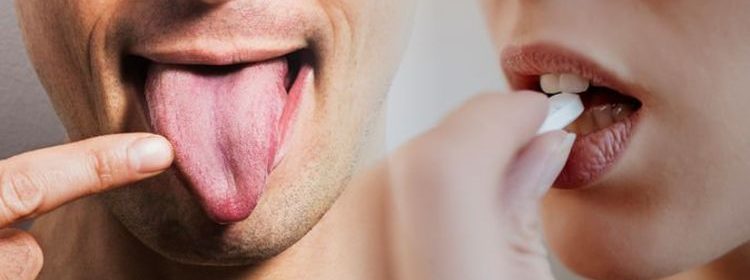Vitamin B12 deficiency symptoms: Does your tongue look different? Changes in your mouth

Dr Dawn Harper on signs of vitamin B12 and vitamin D deficiency
We use your sign-up to provide content in ways you’ve consented to and to improve our understanding of you. This may include adverts from us and 3rd parties based on our understanding. You can unsubscribe at any time. More info
Vitamin B12 is one of the most important nutrients for the body’s overall health, but huge numbers of people might not be getting enough B12 in their daily diet. You could be at risk of a deficiency if you notice some slight changes to your tongue.
Vitamin B12 is used by the body to make new red blood cells, nerves, and DNA.
It’s also used in a number of other everyday bodily functions, but huge numbers of people may not be getting enough in their diet.
The body doesn’t naturally engineer vitamin B12 – like it does for vitamin D – which is why it’s crucial that everybody eats enough B12-rich foods.
But if you are at risk of a deficiency, you could develop some changes to your tongue.

Some B12 deficiency patients might notice their tongue appears to change both colour and shape.
Your tongue might seem more swollen, which subsequently makes it look like all of the taste buds have disappeared.
It might even become more red than normal, and could be painful to the touch.
These changes to your tongue might also impact the way you eat and speak, according to dietitian Helen West.
DON’T MISS
Vitamin B12 deficiency diet: 13p food that boosts vitamin B12 levels [RESEARCH]
B12 deficiency: Two warning signs in your toes of low levels [ANALYSIS]
Vitamin B12 deficiency: Feeling a certain way could be a sign [LATEST]
“Unfortunately, symptoms of a vitamin B12 deficiency can take years to show up, and diagnosing it can be complex,” she wrote for medical website Healthline.
“Glossitis is a term used to describe an inflamed tongue.
“If you have glossitis, your tongue changes colour and shape, making it painful, red and swollen.
“The inflammation can also make your tongue look smooth, as all the tiny bumps on your tongue that contain your taste buds stretch out and disappear.”

But just because you develop a swollen tongue, it doesn’t necessarily mean that you have a B12 deficiency.
Glossitis could also be caused by a dry mouth, acid reflux, or even simply a reaction to eating spicy foods.
Your glossitis is more likely to be caused by a vitamin B12 deficiency if it’s accompanied by some other common mouth symptoms.
Persistent mouth ulcers, pins and needles in the tongue, or even a burning pain inside the mouth could all be caused by the condition.
The best dietary sources of vitamin B12 include animal products, and some fortified breakfast cereals.
All adults need around 1.5mcg of vitamin B12 every single day.
Most people that eat meat products should be able to get enough B12 in their diet.
But those that follow a vegan diet may be at risk of a deficiency, warned the NHS.
Source: Read Full Article